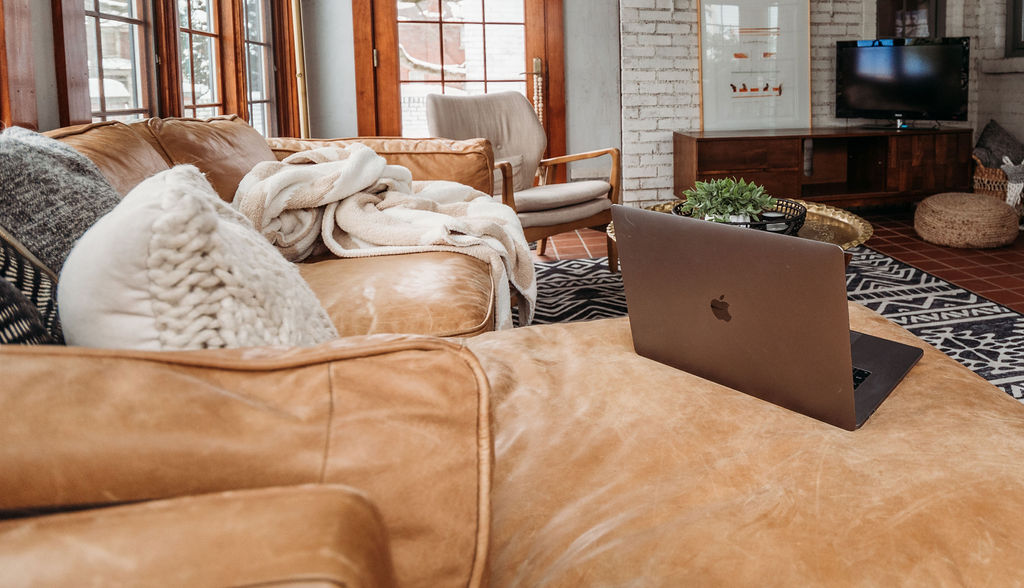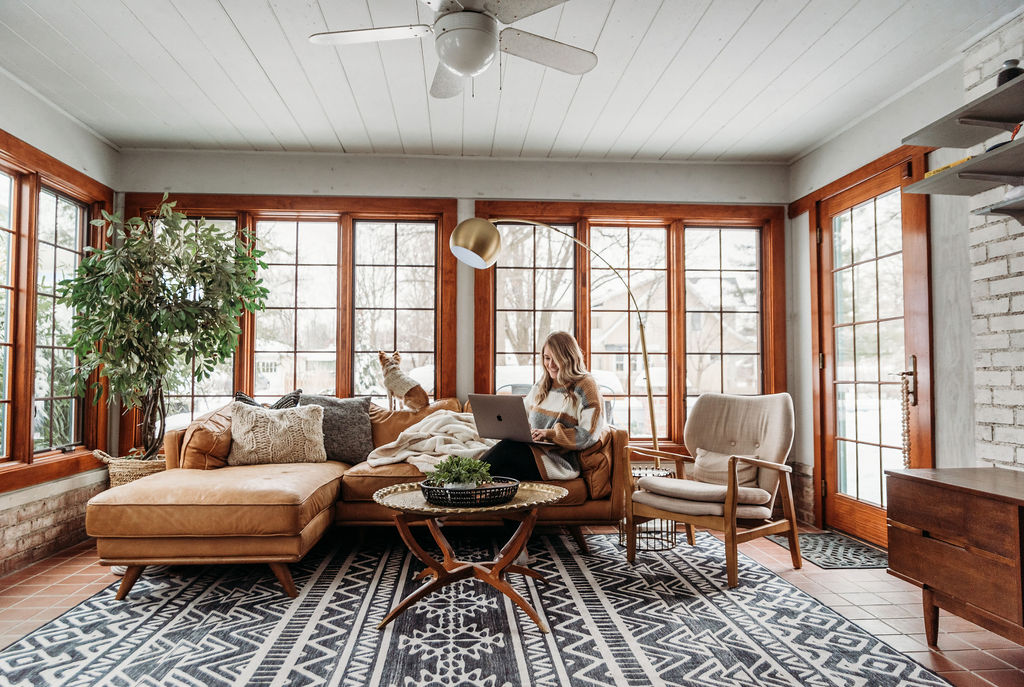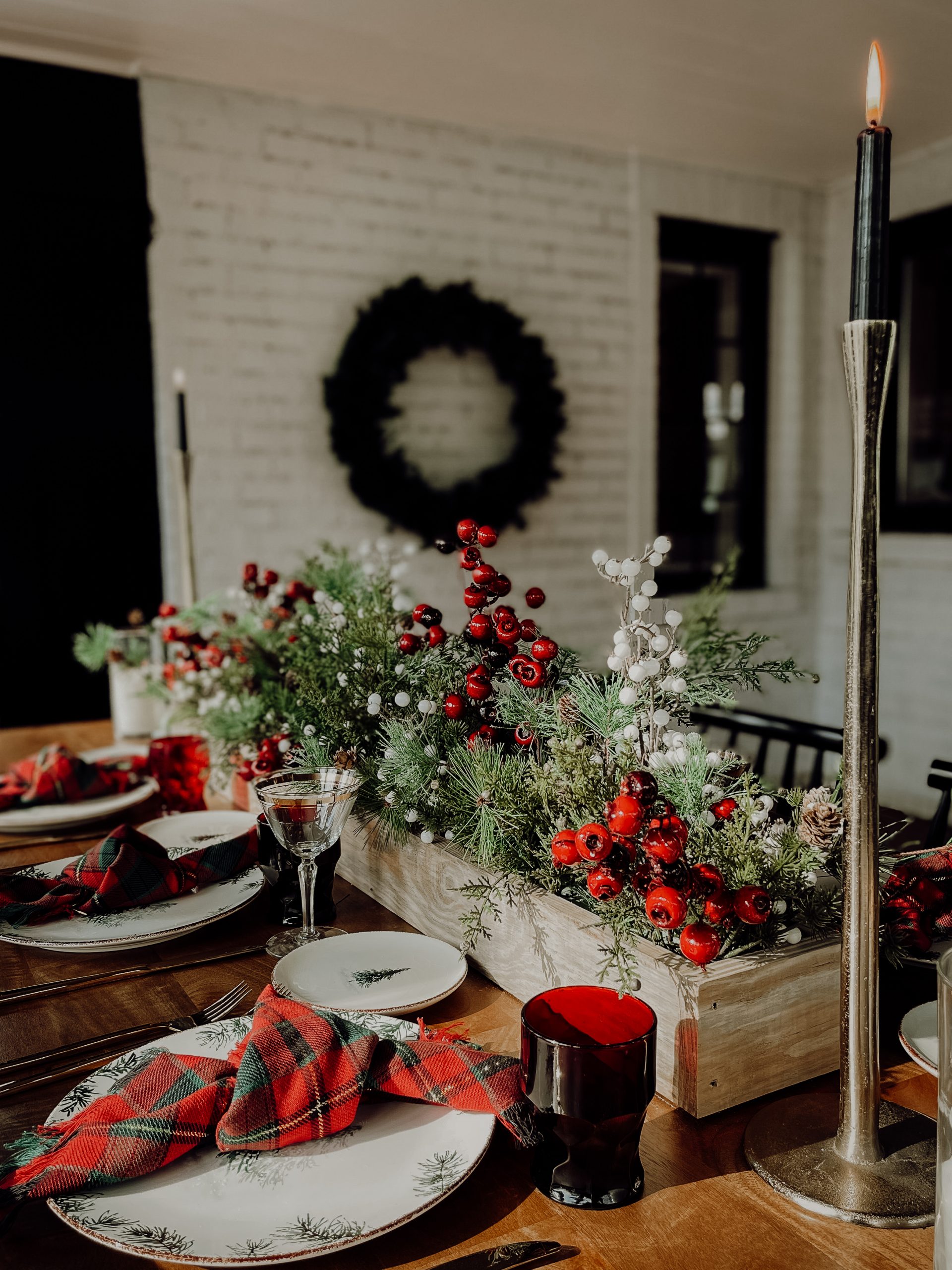
This post may contain affiliate links. Thanks for supporting the blog!
A few months ago, I closed on my 5th home in 7 years! Crazy, I know. We had absolutely zero intentions of moving from our previous home, but the perfect place came on the market, and we decided to give it a look.
The home buying and moving process is a bit lengthy and I could give you advice on many different stages, but I’m going to start at the very beginning. You have decided you would like to buy a home in the near future. What do you do next?
Check Your Credit Score
Your credit score plays a major role in the pre-approval process! I used Credit Karma to stay on top of my credit score. It’s free and gives you suggestions on how to easily improve your score (like paying off credit card debt etc).
The “ideal” credit score depends on what type of loan you are trying to secure, but the minimum credit score on an FHA loan is 580. For a conventional mortgage loan, you will likely need higher than a 650 credit score. The higher your score, the better your rates!
Understand Your Budget
Understanding your budget is crucial. You don’t want to start looking at homes that are completely out of your financial ability and get disappointed (coming from experience).
First, take a look at your income and all of your monthly payments. How much do you bring home each month? How much debt are you responsible for paying each month? Add up things like car payments, credit card minimums, student loan payments etc.
Mortgage lenders look at this number to determine what you can reasonably pay for a home. They don’t want to see the house payment taking up more than around 28% of your gross annual income. Moreover, your total debt should be around 36% or less.

Save for a Down Payment
Saving for the down payment is one of the hardest parts about buying a house! Typically, people think they need to put 20% down, but you can get away with putting as little as 3.5% down with certain types of loans.
I have put anywhere from 3.5% to 20% down on the homes I’ve purchased. If you put less than 20% down on the home, you will need to pay private mortgage insurance (pmi) until you have 20% equity.
Find an Amazing Realtor
Once you have your finances in order and understand your budget, it’s time to find the right realtor! I always recommend asking around for referrals. In addition, realtors often specialize in certain neighborhoods and areas, so check their listings and see what type of buyer/seller they tend to work with.
Get a Pre-approval Letter
Your realtor will likely have a great recommendation for a mortgage lender. Get pre-approved for your budgeted amount BEFORE you start house shopping. If you see an amazing home and want to put in an offer, you will need to present a pre-approval letter with your offer. This shows the seller that you are serious and in a place to buy.
Be Prepared to Pay Earnest Money & Closing Costs
Right now, we are witnessing a very strong seller’s market. Houses are in low supply — which means sellers wield a lot of leverage. Most sellers are receiving multiple offers and are expecting buyers to cover closing costs (the fees and expenses associated with closing on a home, such as attorney fees, title insurance, and appraisals). These are beyond the costs of your down payment unfortunately. But the right home will be worth it!

The current market is a little intimidating — but don’t let that discourage you. It’s entirely possible to find the home of your dreams, it just takes a little planning and help from a seasoned realtor. Drop your house buying questions in the comments below?
More Posts You May Enjoy:
- Kids Playroom Design Ideas
- Bold, Red Rooms are All the Rage for 2024
- A Traditional Christmas Dining Room
- Create a Cozy Vintage Aesthetic at Home
- Kitchen Coffee Bar Makeover



